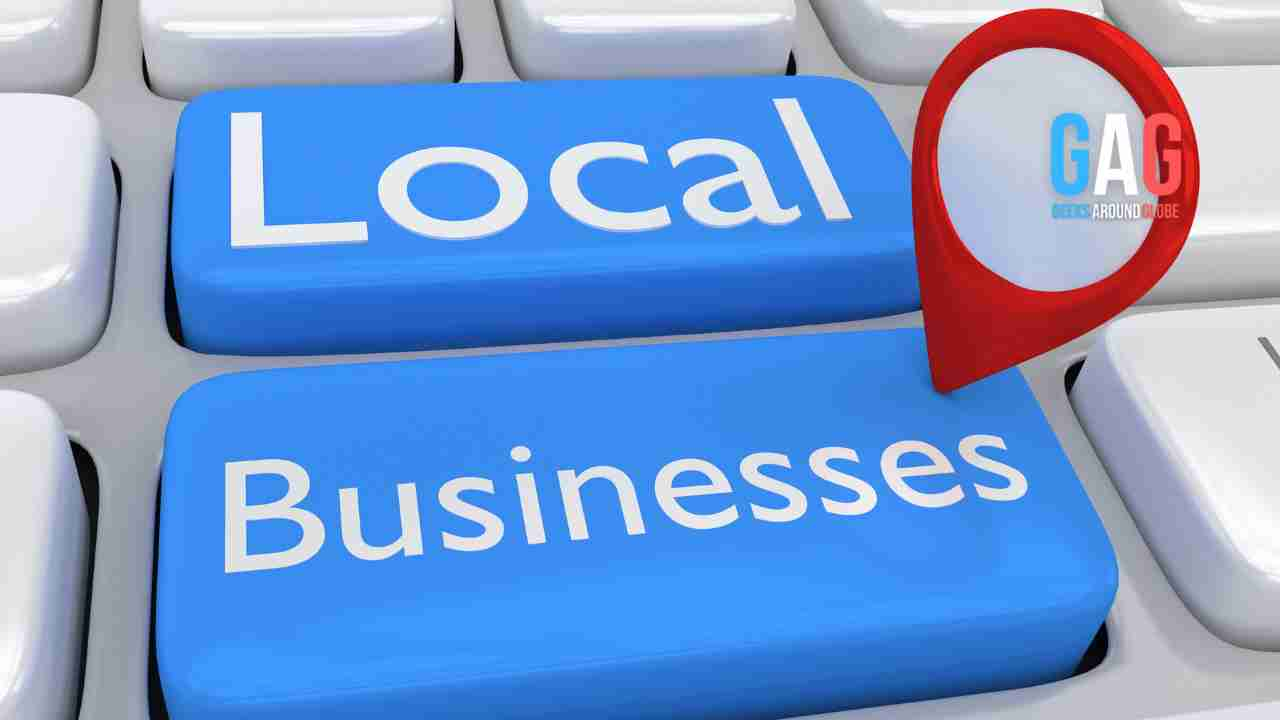- 1. Be Accurate
- 2. Try Local Search Platform
- 3. Keep your Information Up-to-date
- 4. Get Verified Appropriately
- 5. Distance & Proximity
- 6. Similar NAP across all Platforms
- 7. Use Local Schema to your website
- 8. Locale Search is Based on Mobile Devices
- 9. Be Niche Specific
- 10. Integrate Map to your Website
- 11. Local Searches Lead to Foot Traffic, So Make Sure Information is Up-To-Date.
- 12. Create Separate Landing Page for each Location
- 13. Listing Auditing & Reclamation
- 14. Try to Get Reviews
- 15. Update Posts on GMB
- 16. Keep an Eye on Keyword Variations
- 17. Use Geo-Targeting
- 18. Make Social Profiles
- 19. Give Special festive Offers to your Customers
- 20. Steps to improve Local SEO
- 21. Local Address
- 22. Use Geo-Specific Keywords on Your Website
- 23. Create Profile on Local Yellow Pages
- 24. Points to consider while practicing Local SEO
- 25. Tools you can use for Local SEO
- 26. Local Citation Finder
- 27. Yext Powerlistings
- 28. Local Search Rank Checker
- 29. GEO Sitemap & KML Generator
People search for many different things, such as products, instructions, and funny YouTube videos. But consumers are also looking for things that are close to where they live. In fact, 46% of Google searches are for information about a specific place. Local searches make up a big part of what people are looking for, but 56% of local businesses haven’t claimed their Google My Business listing.
Local SEO, like all of search, is both strategic and tactical, but there are tips and tricks you can use to speed up the process and meet your customers on the SERPs so they’ll come into your store. Check out these Local SEO hacks to claim, manage, and improve your local search presence.
Be Accurate
Information is what local search results are all about. Google, Bing Places, and Yelp, to name a few, want to give searchers the right information about your listing, like the right phone number or business hours. If information is wrong or out of date, they are less likely to show your listing to people who search for it.
Try Local Search Platform
Local search platforms like Moz, Yext, RIO, RenderSEO, Chatmeter, Uberall, and SweetIQ can fit into your budget.
When you use a platform, it’s much easier to keep track of all your listings. That means making sure that your name, address, and phone number (NAP) are listed consistently and correctly on hundreds of local search engines and directories and getting rid of any duplicate listings.
Managing this by hand takes a lot of time and effort, and it can lead to errors across the local search ecosystem.
Keep your Information Up-to-date
This is the first piece of advice. If you have more than one location for your business, it’s important to keep track of all your listings and any changes to your operational hours or anything else must be updated as soon as possible. Use our Location/Business Information Spreadsheet to keep track of business listings and location information.
Get Verified Appropriately
Most of the time, search engines already have your business listed, and you just need to claim it and prove that you own it. Verification can be a pain, so make sure you pick the right way to do it. You can find out by:
- Phone
- Verify through GSC
Distance & Proximity
In local search, how close your business is to where a person is searching is very important. You can’t control where people search, but you can control the information search engines use to figure out where your business is. This includes giving a verified address and a set of coordinates for where the address is.
72% of people who search for local businesses end up going to stores within five miles, so making sure your location is correct could mean the difference between a visit and a new search.
Similar NAP across all Platforms
For local listings, it’s important that information is always the same. Your listing should have the same NAP (Name, Address, and Phone Number) as your website or landing page.
Use Local Schema to your website
Structured data is important because it helps Google understand the content better and can increase clicks, impressions, and sales.
The same rule applies to searching in your area.
That’s why you should definitely use structured data types like local business, geocoordinates, postal address, and reviews to help improve performance.
Locale Search is Based on Mobile Devices
33% of people who look for local businesses on their phones want to know where they are. Hubspot says that 30% of all mobile searches are about where the person is.
People use their phones to search, and they use their phones to find your business. Not only is it important that your business information is available on different platforms, but it’s also important that your website is mobile-friendly. People searching on their phones or tablets may also visit your site, and you want them to have the best experience possible.
Be Niche Specific
Even though Google My Business, Bing Places, and Yelp are the most popular local search engines, you should do some research to find directories and search engines that are more specific to your industry.
Integrate Map to your Website
If your business has multiple locations in the same city or region, or even just local chains all over the country, a map interface or Store Locator page can help your customers a lot by giving them easy-to-find directions to your stores. You can add your map to your website by using the Store Locator Solution on Google Maps.
Local Searches Lead to Foot Traffic, So Make Sure Information is Up-To-Date.
Think With Google says that 76% of people who do a local mobile search end up going to a store within 24 hours. If your business isn’t listed, you’re missing out on guaranteed foot traffic. Most searchers are looking for a business close to where they are, so it’s important to have the right location and hours.
Create Separate Landing Page for each Location
Companies with more than one location and/or a “find a store” page should give each location its own landing page. Local landing pages are a great way to rank for keywords like “your business” + “city,” which are very specific to your business. They can also be the main source of facts about your places. The information on local landing pages can be used by marketing managers or agencies in charge of your local search.
Listing Auditing & Reclamation
Information for local search engines comes from many places (submissions, claiming, map, etc). This can lead to multiple citations that are wrong. A business should do a quarterly or biannual audit and reclamation to manage its local search presence and make sure that all of its citations and listings are correct and that people are getting an accurate picture of the business.
Try to Get Reviews
BrightLocal says that 88% of consumers trust online reviews as much as recommendations from friends and family. You should also think about how reviews affect the number of people who come into your store.
Use coupons and offers to respond to good reviews and get the most out of them. Respond to negative reviews honestly and fix the problem.
Update Posts on GMB
60% of consumers say that good images in local search results grab their attention and help them make a choice. Having good photos of your business can help people decide whether or not to go there. Have a lot of different shots, like “front of the business” and storefront shots, as well as shots of the inside and of the products.
Also, make sure to tell your customers to take pictures and share them on social media, since these pictures can also help your business.
Keep an Eye on Keyword Variations
Local keyword research doesn’t differ much from regular keyword research. But SEOs should keep in mind that people search for local results in a lot of different ways. Changes in city, state, and neighbourhood should be used as modifiers, as well as location-related queries like “near me,” “in my neighbourhood,” “in my area,” “in [city],” etc.
Use Geo-Targeting
67% of customers would rather do business with a company whose apps or mobile sites are based on their location. By using geo-targeting on your website, mobile site, or app, you save your customers time and give them the location information they want right away. It gives customers a smooth experience that lets them keep going on their way to making a purchase.
Make Social Profiles
Social media is a powerful tool for local search, with more than 50 million Facebook Business pages and 1.6 billion people connected to small businesses on Facebook. Facebook says that more than 10 billion messages are sent between people and businesses every month. By linking your local listing to your social media profiles, you can make it easier for potential and current customers to get in touch with you for research or questions about customer service.
Give Special festive Offers to your Customers
On Christmas Day, the most people look on their phones for “store hours.” During the holidays, there are a lot of people out and about, and they are looking for business information like hours, phone numbers, and deals. Businesses need a plan leading up to the holidays, and marketing managers should keep holiday business information on separate spreadsheets.
Steps to improve Local SEO
Does your business work with people in the area? Does your business have a local listing if the answer is yes? Small businesses need a local listing if they want to attract more local customers, and they can’t afford to miss out on this.
Yellow pages are now old-fashioned and have been replaced by search engines, which people use all the time to find products and services you offer. Because of this, “local search optimization” has become a buzzword among online marketers, which is something no one can ignore these days.
The end result of local SEO is the same as the end result of traditional SEO. Both require hard work and online marketing strategies that are similar. But for local SEO, you should pay more attention to your niche market.
Local Address
Your first step will be to use local keywords on the “About Us” and “Contact Us” pages. Customers will find it easier to find your business if you list your full contact information, your business hours, and directions. Even better, this information can help you figure out where you are. But make sure you tell them as much as possible about your business.
Use Geo-Specific Keywords on Your Website
Second, you should use geo-targeted keywords to improve your business website. Putting the name of your city or town in your website’s title, content, Meta tags, and H2 tags will help it rank higher in local search results. You have a beauty salon in Fork, Washington, for example. Use geo-targeted keywords in your content, such as “Beauty salon in Fork, Washington” or “Fork, Washington Beauty salon,” to make it more specific. If your business has more than one location, make different landing pages for each one and make sure they use the right keywords.
Create Profile on Local Yellow Pages
Upload your site to the major services that list local sites, and be sure to include some good pictures of your business. It could be a picture of your products or services, the building where you work, the inside of your office, or even a picture of yourself. Make sure you give more than one picture so that potential clients can see what you have to offer. Also, make sure these photos are good, even if they aren’t professional, because they will represent your business.
Points to consider while practicing Local SEO
Before we give you some easy tips and tricks for cracking the local SEO code, let’s look at some of the things you need to think about before you get started.
The first step is to make sure that the goal of the local SEO campaign matches what the client wants. Don’t think you know what the client wants. Set out what you can deliver and give your client the option to choose what is needed. Explain your case in simple, clear terms.
For instance, clients might not care much about online traffic or keyword rankings. They may want to turn whatever traffic they get into online leads more than anything else. If you don’t say anything about it ahead of time, your SEO campaign won’t impress them.
SEO is a field where people from many different walks of life work. So, they bring their own tastes and experiences with them. This could make it hard to picture how the SEO campaign will work. When there is this much confusion during planning, it shows in the website you build or even the campaign you write.
Tools you can use for Local SEO
Local SEO is getting a lot more attention now that more small businesses and entrepreneurs are making it a priority to target certain areas. Those who are serious about getting more known in their area are lucky because they have a lot of options. You can’t go wrong with any of these 7 great local SEO tools if you use them.
Local Citation Finder
Whitespark is one of the best places to get high-quality SEO tools. But there are some cheap ways to deal with it, and one of them is the free version of Local Citation Finder. Local Citation helps you find the best place to list your business so that you can improve your local rankings. Just put in your location and the keyword you want to use, and it will give you a report with the best citation resources based on your entry.
Local Citation’s free version is very useful because it lets you do up to three searches a day, but you can get rid of those limits by upgrading to Pro for a few dollars a month.
Yext Powerlistings
Here’s a tool that gives you control over automation. Yext Powerlistings automatically updates your business information on over 50 of the best local search engines, like MapQuest, Yahoo Local, and Yelp. In addition to basic information like the name, location, and phone number, these updates may include adding new photos, descriptions, and sales.
You can search the web for listings for free, but keep in mind that this is a tool that requires a subscription. Even so, Yext Powerlistings is a useful tool that can save you a lot of time.
Local Search Rank Checker
Local Search Rank Checker is similar to Local Report Card, but in some ways it’s even better. It’s made by BrightLocal, another top company that makes high-end local SEO tools. With this tool, you can get a report that gives you a full picture of where you stand in both local and general search engines. It also lets you compare your current rankings to those of the past, so you can see how your strategy is doing as a whole.
Local Search Rank Checker is part of BrightLocal’s premium package. You can try it out with a free 30-day trial.
GEO Sitemap & KML Generator
Google Local SEO Checklist was made by an internet marketing company called 51 Blocks. It can help your local SEO efforts in a number of ways. One of the best things about it is that it can make a KML file, which is a format that earth browsers like Google Earth and Maps use to show geographical data. Just type in the name, location, and website of your business, and a GEO sitemap and KML file will be made for you. The sitemap and KML file are uploaded to your site’s root directory, and then Google Webmaster Tools verifies them.
Google Local Toolbox is a great way to make sure that your site is fully optimised for local searchers who know what they’re doing.






